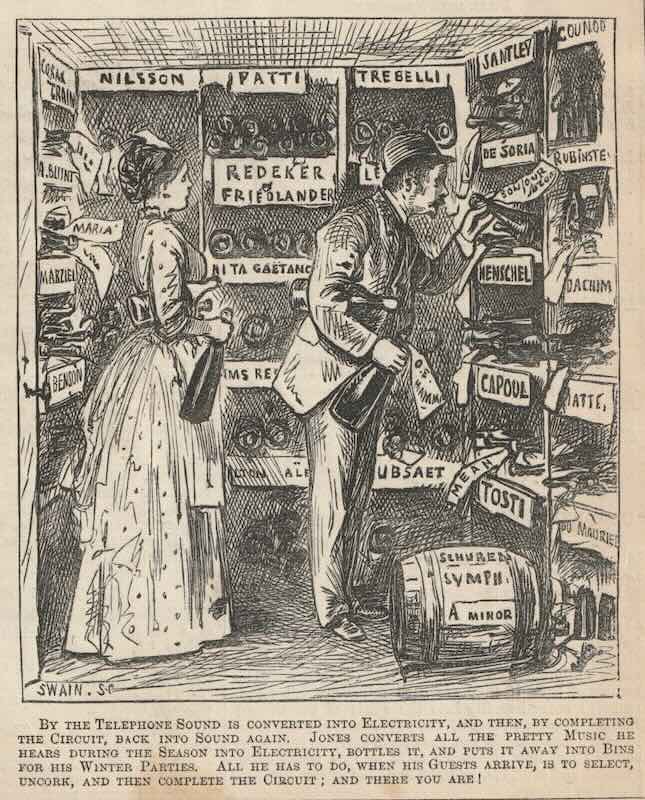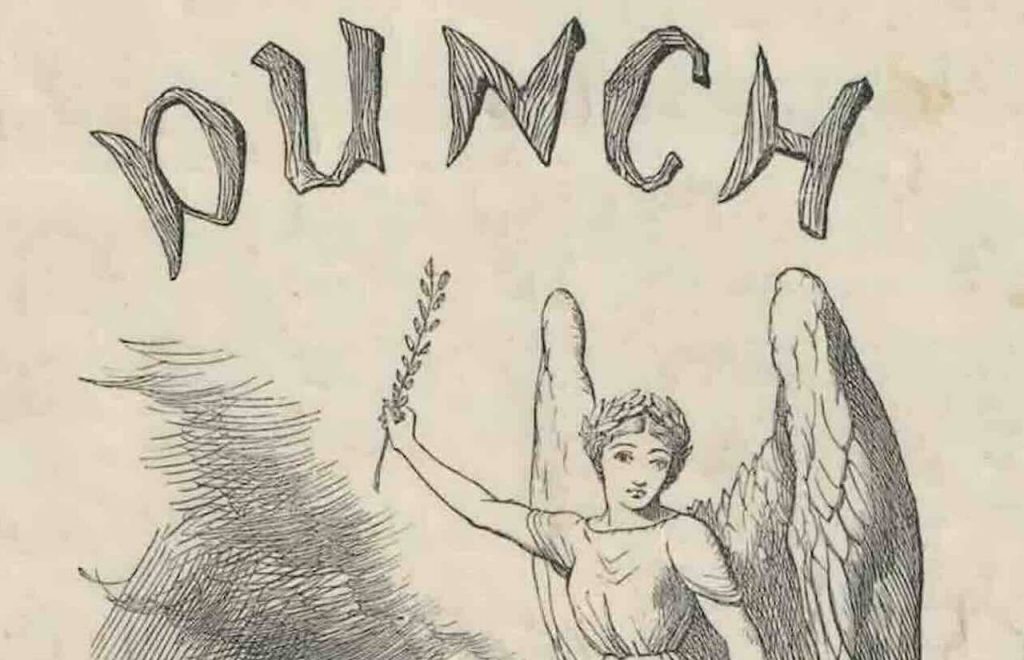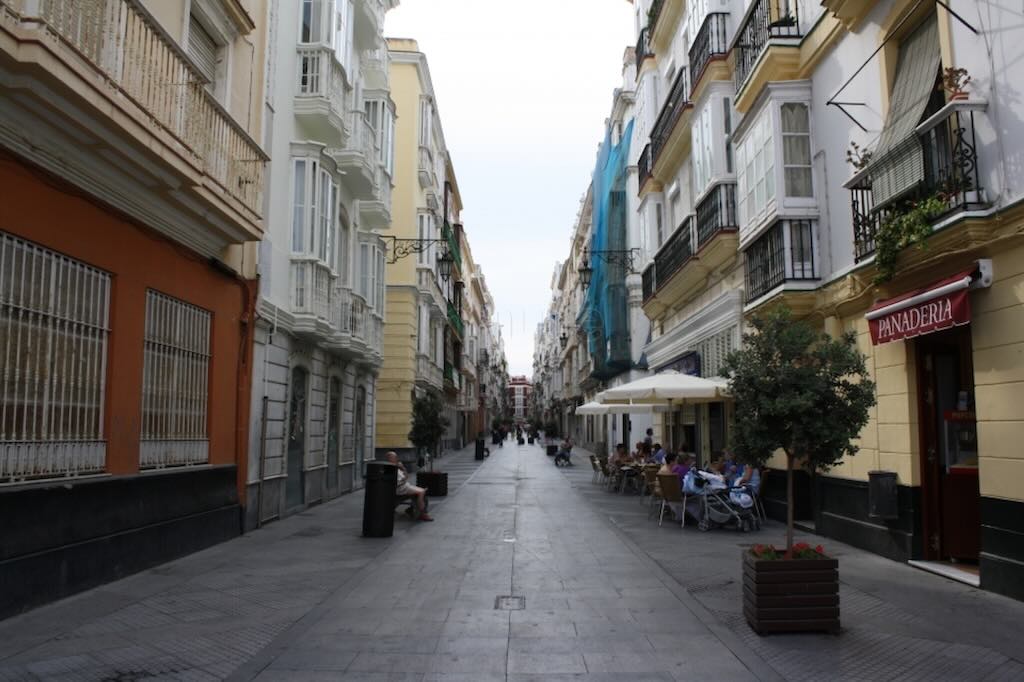I am a man of a liberal persuasion, a man of leisure and taste, and whilst perusing a less than recent copy of Punch Magazine, often called The London Charivari, I discovers some pearls of wisdom.
The year of this Punch was 1878 and the subtitle The London Charivari comes from Charles Philipon‘s French satirical humour magazine Le Charivari. Which refers to the folk practice of holding a charivari, a loud, riotous parade, to shame or punish wrongdoers.
I fully support Mr. Punch’s desire for Peace and Progress, Justice and National Right, but we all know that it will not be so.
The format of the time, with the overarching desire for rhyming commentaries and theatrical overtones, did not meet with my pleasure.
However, I was deeply impressed by the visits made to see the Old Masters at the Academy. The visits, guided by a Young Master who knew nothing about the context or content, were aimed at those who knew even less. The commentaries were refreshingly candid for the time. One example was the comment on the likely wealth of the woman who washed and starched the “great deal of ruff” (ruffled collar and cuffs) of a Flemish Gentleman painted by Peter Paul Rubens.
One important thought was hidden within this edition, that is that a nation has the obligation to look after their patrimony, whilst a great nation must do more. It must look after both their own patrimony, and what they have stolen from others.
What did 1878 reserve for its unsuspecting victims?
In the Russo-Turkish War Russian and Bulgarian forces defeat the Ottoman Empire in the Battle of Shipka Pass IV. Later Russian troops would again defeat the Ottoman Empire at the Battle of Philippopolis. As a result of this Benjamin Disraeli ordered the British fleet to the Dardanelles. Turkey agreed to an armistice at Adrianople, but then Greece declared war on the Ottoman Empire. The Treaty of Berlin makes Serbia, Montenegro and Romania completely independent, confirms the autonomy of Bulgaria, and makes Cyprus a British possession. The Second Anglo-Afghan War started (Britain wins the war in 1880).
Umberto I became King of Italy, succeeding King Victor Emmanuel II.
The world’s First Telephone Exchange began commercial operation in the United States. The phonograph was patented by Thomas Edison. Eadweard Muybridge produced the sequence of stop-motion still photographs demonstrating that all four feet of a galloping horse are off the ground at the same time.
Antoine César Becquerel dies.
Extracts made at my will and pleasure
There were a few ‘desires’ or ‘wants’ that met with my approval. The first was the need for a body of Police to bestow surveillance solely upon members of the brute creation. I particularly support the ‘solely’. I would have also supported the desire of the Statistical Society for the number of murderer of the Queens English. I fear it is too late now.
A man who writes a diary with a view to publication, may be considered guilty of an attempt on his own life.
Happy for the upholding of English common-sense impudently defied, and the comfort of English timidity, well nigh flustered into foolishness and brayed into bewilderment, England has a responsible Government and an irresponsible Press.
How things have changed… but at least we can still count on the Press
The higher education of women. Learning how to walk in French boots with six-inch heals.
You can rely on the Victorians to get their priorities right
A comment inspired by a notice that gunpowder sales were on the rise. The exportation of gunpowder slightly on the rise, is, so far, good for British manufactures, and bad for no other people than foreign combatants. Let us hope that our Powder Millers will not be further enriched by the enormously enlarged sale through the immensely increased consumption of gunpowder, purchased by Her Majesty’s Government in enormous qualities at the expense of her subjects, and exported only to be burnt against enemies too likely not to prove worth the powder and shot, expended on them by thousands of valuable soldiers and countrymen of our own, destined themselves to be food for powder.
Here we are in 1878, and the first telephone patent was granted to Alexander Graham Bell only in 1876.

Some advice for the first trip to the Continent
That pourboire is a word in common use upon the Continent.
That to journey by yourself with a knapsack at your back is certainly much easier, though of course far less respectable, than to travel with a wife and daughters, and their lady’s-maid and luggage and parasols, and handbags, and pet dogs, and other knicknacks.
That it is not every alpenstock that has been up Mont Blanc, although the name may be conspicuously branded on it.
That you had better use plain English than questionable French, or German, or Italian, at least when you are giving instructions to a waiter.
That however much it makes you smack your lips at first, there yet may come a day when you are sad to see an omelette.
That a wet day in Venice, or even in Vienna, is hardly more enjoyable than one in Mudborough or London.
That it really is astounding what il-usage a portmanteau may endure when it has grown well seasoned to it.
That in refreshment-rooms abroad you can get something better than a Bath bun or stale sandwich.
That in a crowded Spanish church, where peasants mostly congregate, the odour of sanctity is sadly full of garlic.
That it is not every French cook who can serve a tender steak, and a hot plain boiled potato.
That one may feel slightly chilly even in the Sunny South, a little after nightfall in the middle of November.
That if you desire to travel en prince, in point at least of cost, you had better take a courier.
That the finest mountain scenery, and the best of tables d’hôte, may be spoiled by a mosquito.
That the railway guards in Germany are not so prodigal of small politenesses, even when bribed handsomely, as their brethren are in England.
That there is not much to choose between a Paris fog and a London one.
That foreigners, after all, are not bad fellows in their way, but they might have better figures if they did not eat such monstrous breakfasts, and played more athletic games than dominoes and billiards.
And, finally, that, however glad one feels at getting away from home, one is generally far more so at the thought of getting back to it.
A cry from the heart
SIR,
I HEARTILY approve of the excellent letters in the newspaper on the extravagant folly of Christmas Cards, which has now reached such a disgusting pitch. It is said that these idiotic effusions please the children, but what right, I ask have the children to be pleased at the expense of their elders? I hate children. They are nuisances and grievances, which every year become more expensive to those who are unlucky enough to be saddled with them, and even more annoying to those who have escaped the infliction.
And now, Sir, I wish to raise my voice against another abuse. I would ask, why should children’s birthdays be kept? Why should these little nuisances have toys and treats showered upon them in celebration of events which from any rational point of view can only be described as lamentable?
The practice has increased, is increasing, and ought to be diminished. Nay, Sir, it ought to be discontinued altogether. From causes beyond my own control, I am a frequent visitor at a house where children abound. The cook and the cellar are a set-off against the nursery-plagues. Whenever I am at this house one child or another is sure to have a birthday, and I am expected to give this child a present under the penalty of being considered a mean old brute. Put the thing down Sir, put it down! It is an imposition, Sir, a scandal, a levy of blackmail on those whom Providence and Prudence together have saved from this class of inflictions!
Amongst whom I thankfully sign myself, SOWERBY GRUMPUS
How to secure urban safety - under the existing Police Regulations
1. Select your villa on the top of a high hill, taking care to cut down all the timber within a quarter of a mile, and uprooting every garden shrub that could afford shelter to a man of average hight approaching the house stealthily on all-fours.
2. As soon as you are installed, have the kitchen and other back doors nailed up and gratings affixed to all the ground floor windows. Greater security may be attained by covering the latter with a network of electric wire, which may be advantageously continued in enlarging circles, a foot from the ground, all round the house, and may communicate with a gong on the roof. In the day-time visitors will thus unconsciously announce their own approach, while at night the continued booming above their heads may act as a deterrent to nervous burglars, and give time for a Policeman to be fetched in a cab from the nearest point of the Metropolis where one can be found.
3. Let your furniture be artistic but to the purpose. Drawing-room cabinets, containing valuables, should spring open on being touched, and clutch the intruder with a grapple, while they detonate, in order that the household may be apprised of the occurrence. Elegant fancy cards with “caution”, and other appropriate illuminated mottoes, might warn guests off at evening parties. All chairs should be “trick chairs”, to close on the occupant, while the threshold of every door and window should give way under the foot and shoot the intruder, whoever he may be, head first into the apartment beneath.
4. Never keep any silver in the house under any pretence whatever. On the rare occasions when you venture on the hazardous undertaking of asking a friend or two to dinner, request them to bring their own forks, spoons, and revolvers with them, and take care to have the table laid in a back bedroom upstairs, handing over the basement, dining-room, drawing-room, and wine-cellar, to the body of police which you will, of course, have got the authorities to send down from Scotland Yard for the purpose of seeing you safely through the festivity.
5. If you have a gold-fish pond on your lawn, and your wife has not lost her jewellery long ago in various robberies, place what is left of it in a iron box at the bottom of the water, and over the treasure thus secreted with a couple of torpedoes, and watch it from a convenient window with a loaded rifle.
6. In arranging your hours of sleep, endeavour, if possible, to manage them in the day-time, which will leave you your nights free for necessary adventure, and the preservation of such personal property as you can contrive to keep.
7. If, in spite of your precautions, your house is again attacked, and you find yourself, after being badly treated and shot at, robbed for the thirteenth time, write a letter to the Times.
8. And last – finding even this fails, as you probably will, to procure redress for your grievance, get a modern-mediavally-minded-art-friend to paint you a Policeman and his accoutrements upon the fan-light of your front door, with the legend in large text, “Non tali auxilio, non defensoribus istis!“. By this you may possibly arrest the impulse of the well-educated housebreaker, and may most certainly enforce on yourself the reflection that, whether you rely on such assistance or not, you will, under existing police regulations, undoubtedly not get it.
A question addressed to the Times on 'Medical Charges'
Sir – I have a bone to pick with my doctor, but I feel some delicacy in speaking to him direct, because he is a very good fellow, and occupies much the same social position as myself. Will you let me ask him, then, through you, why he never condescends to give me any items or dates in his bill, but fleeces me under the simple but comprehensive heading, ‘Medical Attendance’?
Mr. Punch noted that this was a question which the correspondent would not have had to ask in the days when he was a medical student. Our correspondent would have been fully satisfied with the doctors’ bills of those good old days. If he had then been a patient, he would never have been ‘fleeced’ by being charged for ‘medical attendance’ in a lump. His medical man, if a general practitioner, would have sent him in a quantity of medicine, say one or more pills to be taken every night, and a bottle or several of physic, so many draughts or so many doses, three of four times a day. All of these items, with corresponding dates, would have been duly set down in his doctor’s bill, which he would contentedly have paid at Christmas. Amongst them the pills and some of the mixtures would have possessed active properties, and perhaps have done him, some good. The rest might have tended to work uроп his imagination, and quiet his mind. In themselves they would mostly have been little more than coloured water, strongly flavoured with some nauseous ingredient of the Materia Medica. Their intrinsic value would have been, perhaps, a few pence, but they would have been charged for at the rate of some five shillings a day. By thus selling superfluous and sham physic under the pretence of treating disease, the doctor did not always cheat his patient. In many cases it was only an indirect way of getting justly paid for professional services. There was no other, except for the physician or ‘pure’ surgeon, who took fees. But the medical man was always tempted to overcharge his patient by overdosing him. He sometimes yielded to the temptation, but he never gave any cause for the subjoined comparison,
“If my tailor were to send in his account merely ‘To Clothes’, I should have no scruple in having it out with him should the amount exceed what I anticipated, but for the reason above I cannot so treat my doctor, and he has, therefore, an unfair advantage over me. If he would give me some details, were they only dates, he would greatly soothe, Yours truly, An overwrought patient“
What are the details of medical attendance, which this Gentleman conceives to be capable, of being specified like articles of apparel? Had he suggested a lawyer’s bill instead of a tailor’s, his wishes for details might perhaps be met by specification. “To ask you to put out your tongue, 6s. 8d”, “To percussion of chest, 16s”, “To auscultation of ditto, £1″, “To instructions on diet and care of health, £1. 1s.”. These, perhaps, are the sort of details which would tranquillise “an overwrought patient”, who’s views on medical charges coincide exactly with that of an old lady whom I once heard likewise object to their generality, saying, she “wished to know what she was paying for”. As to the dates which even alone would “greatly soothe him”, so many would represent so many visits, but how many of them necessary? That should be a question for a patient who doubts the honesty of his doctor.
If you, Mr. Punch, were ever ill, you would expect your doctor to cure you as soon as possible. The sooner he cured you, the more liberally you would reward him. You would not ask him for items and dates. You would not tempt him to keep you on his books as long as possible. You would not, therefore, be like to pay him in inverse proportion to the good he did you. You, Sir, are a wise man, and not a fool. You would never have a bone to pick on the score of bills with your humble servant, Asclepiades Harvey.
A bit of discipline does a world of good
WANTED, a LADY, who is a strict disciplinarian, who will RECEIVE into her house a YOUNG LADY, age fifteen, backward in her studies and somewhat refractory in temper. Most liberal terms are offered to a Lady who will superintend her studies in English and rudimentary French, and who will enforce her commands by corporal punishment.Address, stating terms, and kind of punishment used, to, etc. — Daily News, Jan. 19.
The above advertisement, to judge by the number of letters Mr. Punch has received, enclosing it with comments, has excited no common attention. It is so refreshing, in this soft-hearted age, to find a Spartan spirit nerved to sterner views of discipline and duty. We understand that the advertiser has has several answers, but only one “up to sample”. We subjoin it:-
Madam, I shall have much pleasure in undertaking the congenial task of subduing the refractory nature of the young Lady for whom you desire to secure a wholesome course of discipline. I am assured of my complete ability to break her rebellious temper, and to bring her whole nature into a Christian state of subjection. I am aware there is a remote possibility of your young step-daughter (as I presume she is) succumbing physically under my system, if she be of delicate organisation, or mentally, it her brain be weak, or both, if body and mind alike be of other than hardy fibre. “Spare the rod, and spoil the child”. I take these inspired words for my rule of action. My whole system of corporal punishment is singularly perfect, so as to avoid the vexatious interference of the law, or the meddling officiousness of the puling philanthropy which dreams of education a “rebellious nature” by moral suasion, patient love, and cheerful influences. Our ancestors were wiser. Only by stripes, hunger, thirst, cold and terror, can weak mental powers be strengthened, and recalcitrant wills subdued.
I have another young orphan girl under my care at present, who is now little better than an idiot, through the mistaken course taken in her early youth by fond and foolish parents. I have, however, succeeded, after much trouble, in subduing her self-willed disposition, repressing her unseemly gaiety, and checking her silly coaxing ways. On the special adaptation of punishments to young persons under my system I will not enter into detail, merely stating generally that stocks, backboard, wholesome discipline with a cane or leathern thong, abstinence from food, long and severe lessons, commencing at five, and continued through the day under close continual surveillance, of younger pupils by older, of both by assistants and all by the Principal, strict prohibition of frivolous amusements, and the cold water douche for abnormal refractoriness, are all employed at my establishment. Religious instruction in the most orthodox tenets of Calvinism is systematically combined with these strictly educational appliances.
If your young relative is not wonderfully improved in temper, heart, intellect, and acquirements, in two or three years, hers must, I fear, be regarded as a peculiarly hopeless case. My terms are £150 a year. Highest references as to my respectability, genteel connections, consistent piety, and essential fitness for the position of instructress, guide and friend of youth. Feeling sure of a favourable response, I am, Madam, Yours Obediently, Priscilla Lovibond.
Investing in the army has always been a priority
GREAT excitement in military circles. Mr. Punch has reasons to believe that in anticipation of the grant of £6,000,000 for putting the Empire in a thorough state of defence:-
A contract has been accepted for giving a new coat of paint to the two sentry-boxes mounted over the War Office kitchens.
An addition yard of gold lace will immediately be added to the uniforms of the Beefeaters.
The music-stands used by the Bands of the Guards in the Courtyard of St. James Palace will be throughly repaired.
The Mortars, used for firing off salutes in St. James’s Park will be rifled, and a store of blank ammunition will be formed at the Horse Guards.
Three new chargers will be added to all the Line Cavalry regiments.
Colonels of Militia will be furnished with revolvers.
The kit of a recruit in future will include a clay pipe and a tobacco pouch. These additions are intended to stimulate recruiting in the mining districts.
A new uniform Button will be introduced in the Highland regiments.
The Royal Welsh Fusiliers will be presented with another Goat.
The 1st Royal Scots will be furnished with a set of Bagpipes, on the condition that the Piper never plays on them within three miles of the two-mile radius.
The spike on the new Regulation Helmets will be lengthened one-eighth of an inch.
The Household Cavalry will receive steel gauntlets, to be worn with their cuirasses, so useful in a modern charge.
Flower beds will be laid out around some of the non-commissioned officers huts at Aldershot.
A small retaining fee will be paid to the Penny Steamboat Company, so that the fleet of that association may be available in case of need for transporting troops from Gravesend to Gallipoli.
Captains of the Royal Navy will be furnished (free of charge) with plumes to be worn in their cocked hats on the Queen’s Birthday.
A new Flag will be supplied to Greenwich Hospital.
The Coastguard Stations on the East of England will be whitewashed.
A new steam-launch, for the use of the Lords of the Admiralty, will be moored at Maidenhead.
The Militia will be supplied with gloves, and the Volunteers with comforters.
The remainder of the Vote, not expended as above, or in any other way that may be deemed best by the Government, will be returned into the Exchequer by the 1st of April.
Letter from a husband visiting Paris for work
I am sure, were you here, you would agree with me that I was quite right when I decided that I would come alone to this miserable place, just to look round, and see if I thought you would like it. At the time, you may remember, you imagined I was selfish, in fact, you said as much. Ah! if you could only look into my heart! However, I will speak no more of the past, but confine myself to the present, which, I need not say, is very dreary without you.
I promised to report upon Paris. I do. Paris, in a word, is unbearable. The place is crowded with foreigners, and all “the best people” (I know how you respect the aristocracy), are absent. It is not considered the thing to stay in the place during the Exhibition. Surely this is an excellent reason (were there no other) for your staying away. I am sure Mrs. PLANTAGENET BROWN would not think of coming, and I should not like my dear wife to be less particular than Mrs. PLANTAGENET BROWN.
The prices are enormous. I date this letter from the Exhibition itself, as I have not yet decided upon a hotel. I am staying at the moment at a very uncomfortable hotel garni, near the Grand Opéra, but spend a great deal of my time in hunting for something cheaper. You had better address your letters for the present, therefore, Poste Restante. Living, too, is very dear. They have raised the prices at all the Maisons Duval five sous! Think of that! In consequence, I am forced to look for a dinner elsewhere.
As there are none but foreigners in Paris, there are absolutely no fashions, I have tried to find the address of the dressmaker and bonnetmaker you gave me, but have not yet succeeded in discovering them. Perhaps they may have gone away in consequence of the Exhibition. As, if I remember aright, you said one of them lived in Rue de la Paix, I have no doubt that this is the case. I have not yet been to the Bon Marche, but a friend tells me that they are only selling English goods of two seasons ago at that noted magazin. You wanted me to pick up some frocks for the children there – perhaps I might get you a bonnet instead, if you thought it worth while? Shall I go beyond twelve francs fifty?
There is nothing worth seeing at the theatres, and the Bois is quite deserted. In fact, the place is quite intolerably triste. You should pity me – particularly in my enforced condition of bachelar loneliness and discomfort.
I rather fancy that I said I should be back by Monday, but, as I want to study some curious agricultural inventions in the Exhibition, I think I shall stay another week just to look at them. It will be a very great sacrifice. It would be so different if you were with me, or, even if the place were only a little more amusing. As it is, I cannot help congratulating myself, as a kind and loving husband, that I am alone, to bear the infliction. Kiss the children for me, and believe me,
Your own darling old hubbie, Peter.
At the same time our loving husband sent a telegram to his friend Charles, also a member of the Megatherium Club.
En garçon for another week. Come over. Splendid fun. Have taken a couple of fauteuils at all the best theatres for the next six days. Dine regularly at Véfour’s. Have taken room for you next to mine at the Grand. Expect you tomorrow.










